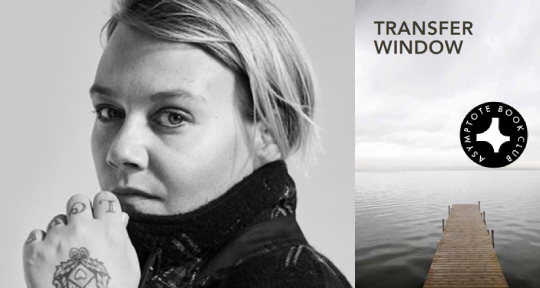Transfer Window was Maria Gerhardt’s last novel: she died within a week of its publication, having battled breast cancer for half a decade. Transfer Window is a dispatch from the front line of that battle, offering a series of wry and witty observations on the “mistakes of the healthy” and a vision of a futuristic Danish society that occupies the liminal space between utopia and dystopia. In Lindy Falk van Rooyen’s English translation, it “fully deserves the international recognition its author never quite received in her own lifetime.”
In nineteen months, the Asymptote Book Club has brought subscribers selections of the best newly translated fiction from nineteen different countries. You can sign up in time to receive the next title via our website, or join the online discussion on our Facebook page.
Transfer Window by Maria Gerhardt, translated from the Danish by Lindy Falk van Rooyen, Nordisk Books, 2019
Reviewed by Jacob Silkstone, Assistant Managing Editor
Nightwood, one of the strangest and most haunting novels of the 1930s, was described by its author as having been written in blood “while it was still running.” Under an alias inspired by Nightwood, Maria Gerhardt became “the go-to-name in [Copenhagen’s] nightlife” in the 2000s, as DJ Djuna Barnes. She also published three books, won a player of the year award for Dragør BK, and was a leading member of Denmark’s “punk and feminist scene.” Aged just thirty-four, she was diagnosed with breast cancer; she died less than a week after the publication of her final book, which has now been translated into English as Transfer Window.
Transfer Window, too, is a book written in blood. It contains an oneiric vision of Copenhagen’s wealthy suburbs being transformed into an “enormous Hospice, unparalleled anywhere in the world” and carries a jaunty subtitle (Tales of the Mistakes of the Healthy), but this is a dark and deeply disturbing novella. About a quarter of the way through, we’re offered the morbidly cinematic image of blood spattered across the narrator’s white hoodie—a sleeve spattered with blood that’s “primarily my own, of course.”
The narrator shares many biographical details with the author, and parcels out her life—a life now spent alongside a circle of other young cancer patients, “all their clocks wound to a halt, blaring alarms”—to the reader in a series of vignettes, most under half a page in length. At barely ninety pages, this is a book to share with anyone who wants a clear definition of the distinction between a quick read and an easy read. An episode in which the narrator’s child rejects help with dressing and the offer of a bedtime story occupies only a single page, but ends in a devastating line that will implant itself in the minds of most readers for months or years: “I said to myself, again and again, that it was okay; it was okay that he didn’t want me as a parent, now that I would soon be dead.”
Understandably, there are moments in which a deep bitterness seeps into the text. Marooned in a waiting room, the narrator finds herself resenting “the stupid and the overweight, all these people who’re supposed to die before I do.” At another point, “The snot coursed down my face in elevens like a child,” and the narrator struggles to understand why “so much pain was destined for me . . . Where had I gone wrong? Why had I, in particular, been allocated such a large plot in hell?”
Transfer Window is a dispatch sent from a kind of hell, but Gerhardt reports with something approaching panache—observing life with an eye for the absurd and a talent for aphoristic prose. In Lindy Falk van Rooyen’s adept translation, this last book fully deserves the international recognition its author never quite received in her own lifetime.
Jacob Silkstone is an Assistant Managing Editor for Asymptote. He was previously Managing Editor of The Missing Slate (Pakistan) and has worked at international schools in Bangladesh and Norway.
*****
Read more from the Asymptote Book Club here:

